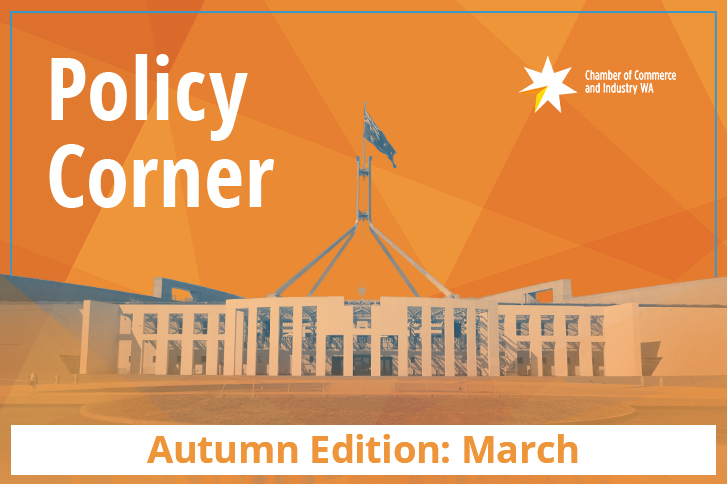 The Federal Government’s proposed industrial relations changes could pose a risk to businesses, potentially compromising their ability to maintain workforce flexibility and adapt to changing demands.
The Federal Government’s proposed industrial relations changes could pose a risk to businesses, potentially compromising their ability to maintain workforce flexibility and adapt to changing demands.
The Government is proposing to change the definition of a casual worker, which sits under a broader set of IR reforms to be introduced to parliament later this year. It includes the ‘Same Job, Same Pay’ reform.
Casual employees who are working regular “permanent” hours will have the option to become permanent workers after six months, the Government proposes.
According to Aaron Morey, CCIWA Chief Economist, the changes will hurt small and family businesses, particularly retail and hospitality.
“This is absolutely not welcome by the business community,” Morey tells ABC Radio Perth.
“It is yet another change proposed in the industrial relations space, which takes a stick to business rather than a carrot and trying to make help those businesses employ more people and grow the economy.”
Getting the balance right
Morey says the current laws provide certainty for employers while still maintaining flexibility for both workers and business owners following the High Court case Rossato. The Government is effectively attempting to reverse the High Court’s decision.
“Casual workers get their 25% loading, and businesses have the flexibility to run those businesses as they need to, as demand dictates,” he says.
“We already have a very certain system and approach in place which really does get the balance right between providing a fair pathway for casual people to become permanent once they’ve been working for 12 months with regular shifts.”
The Australian Chamber of Commerce and Industry (ACCI) says only about 1-2% of the roughly 850,000 casual workers will opt for this change.
“It’s a form of employment that suits younger people, such as students, and others with family responsibilities who need the flexibility,” ACCI CEO Andrew McKellar says.
McKellar says there is already a pathway to permanency for casual employees.
“The definition of casual employment was tested in the High Court and has been set out in legislation. This will turn reform backwards,” he says.
“Casual employment is particularly important for small business, especially in retail and hospitality, where businesses need to be able to roster according to demand and the casual’s availability.”
Workers won’t receive any backpay, and they won’t be forced to convert from casual to permanent if they don’t want to, says the Hon Tony Burke MP, Federal Employment and Workplace Relations Minister.
“We are keeping much of the existing framework that unions and business groups agree should not change, including existing processes to offer eligible employees permanent work after 12 months,” he said.
“This delivers on our election commitment, ensuring that where a worker’s pattern of work is no longer casual, they have the choice to move to permanent employment and gain the benefits of secure employment.”
IR reforms coming
The new draft legislation is expected to be released by the Government in August. In addition to the changes to casual employment and employee-like forms of work, some other significant areas of reform are likely to be Same Job, Same Pay amendments that impact on the labour hire industry, changes to discrimination law, criminalisation of wage theft and stronger rights for union delegates and expanded entry rights for unions.
CCIWA will be closely monitoring the implications for businesses.
“A lot of the other reforms put forward by government, whether it be multi-employer bargaining, Same Job, Same Pay, these have deep impacts for the industrial part of the WA economy and threaten our ability to diversify,” Morey says.
“These changes, in particular to the definition of a casual worker, will particularly hurt those small and family businesses and retail and hospitality.
“It’s going to create more uncertainty and it’s going to make it harder for many businesses to run their organisations.”
Our Employee Relations Advice Centre is also available to respond to your questions on (08) 9365 7660, or via [email protected]












